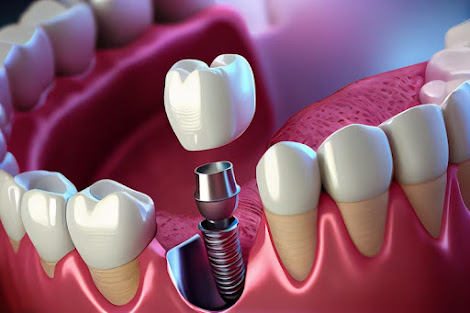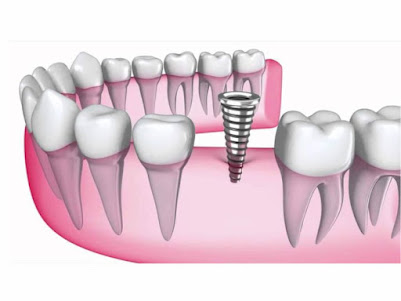What Questions Should I Ask a Dental Implant Expert?
Dental implants are a significant investment in your oral health, and choosing the right expert for the procedure is crucial to ensuring long-term success. Dental implants replace missing teeth with a permanent solution that closely mimics the appearance and function of natural teeth. However, before committing to the procedure, it’s essential to consult with a dental implant specialist and ask the right questions. Here are the key questions you should consider when discussing dental implants with a professional.
1. Are You a Board-Certified Implant Specialist?
Dental implants are a specialized procedure that requires advanced training. Not all general dentists are qualified to perform implant surgery, so it's important to ask if the professional is a board-certified implant specialist. Certification from recognized organizations, such as the American Academy of Implant Dentistry (AAID) or the International Congress of Oral Implantologists (ICOI), indicates that the dentist has completed rigorous training and adheres to high standards of care.
2. How Many Dental Implant Procedures Have You Performed?
Experience is a critical factor in choosing the right implant dentist. Ask about the number of implant procedures the dentist has performed throughout their career. Dentists who have completed hundreds or even thousands of procedures are likely to have encountered a wide range of cases, making them better equipped to handle any complexities that may arise. Don’t hesitate to request before-and-after photos of previous patients, as well as testimonials, to gauge the dentist’s skill and success rate.
3. What Is Your Success Rate with Dental Implants?
Most dental implant procedures have a high success rate, often between 90% and 95%, but individual results can vary based on the dentist's expertise, the patient’s health, and other factors. It’s important to ask the specialist about their personal success rate with dental implants at Pinnacle Dental Plano. A high success rate is a positive indicator of the dentist’s proficiency, while a lower success rate may suggest that complications are more common in their practice. Understanding the success rate will help you make an informed decision.
4. Am I a Good Candidate for Dental Implants?
Dental implants are a suitable option for many people, but not everyone is a good candidate for the procedure. The dentist should evaluate your overall oral health, the condition of your jawbone, and any underlying medical issues. Ask the specialist whether you are a good candidate for dental implants and what factors could affect the success of the procedure. Patients with insufficient jawbone density, for example, may require bone grafting before implants can be placed. Knowing this in advance will help you understand the complexity of your treatment plan.
5. What Is the Dental Implant Procedure Like from Start to Finish?
A detailed understanding of the entire dental implant process is crucial for setting expectations and preparing yourself mentally and physically. Ask the expert to walk you through each step of the procedure, from the initial consultation to the final placement of the crown. Typically, the process includes an assessment, any necessary preparatory procedures (like tooth extraction or bone grafting), the surgical placement of the implant, a healing period (osseointegration), and finally, the attachment of the prosthetic tooth. Knowing this timeline can help you plan for the procedure and any necessary recovery time.
6. How Long Will the Entire Procedure Take?
The dental implant process can take anywhere from several months to a year or more, depending on the complexity of the case and the need for additional procedures like bone grafts. Ask the specialist for a realistic estimate of the time it will take to complete your specific treatment plan. Be sure to discuss any potential delays or additional procedures that might extend the timeline. Understanding the duration will help you manage your expectations and plan your schedule around important milestones in the process.
7. What Are the Potential Risks and Complications?
While dental implants are generally safe, as with any surgery, there are potential risks and complications. It’s crucial to ask the expert about possible complications, such as infection, nerve damage, or implant failure. Ask how they manage these risks and what steps are taken to prevent complications. Additionally, inquire about the protocol if complications do arise, and ensure that the specialist has a clear plan in place for addressing them.
8. What Type of Anesthesia or Sedation Do You Offer?
Dental implant surgery can be a lengthy and complex procedure, so it's essential to understand what anesthesia or sedation options are available. Most procedures are performed under local anesthesia, but some patients may require or prefer sedation, especially if they are anxious about dental procedures. Ask the dentist about the types of sedation they offer, such as oral sedation, IV sedation, or general anesthesia, and which option is most appropriate for your situation. Knowing your options will help ensure that you are comfortable during the procedure.
9. What Is the Cost of the Procedure?
Dental implants can be a significant financial investment, and costs can vary widely depending on factors such as the number of implants needed, the complexity of the procedure, and the geographic location of the practice. Ask for a detailed breakdown of the costs involved, including the cost of the implant itself, the abutment, the crown, any additional procedures like bone grafting, and anesthesia. Additionally, inquire about payment plans or financing options that may be available to make the procedure more affordable.
10. Does Insurance Cover Dental Implants?
Dental insurance coverage for implants varies, as many insurance companies still consider implants to be an elective or cosmetic procedure. Ask the dental implant expert whether they accept your insurance and if your policy provides any coverage for implants. If your insurance doesn’t cover implants, ask the practice if they offer any alternative financing options, such as payment plans or third-party financing. Understanding your financial options can help you budget for the procedure without feeling overwhelmed.
11. How Do You Handle Follow-Up Care and Maintenance?
The success of dental implants doesn't end with the surgery. Proper aftercare and maintenance are essential to ensure the longevity of the implants. Ask the specialist about the follow-up care process, including how often you’ll need to visit for check-ups and what steps you should take at home to care for your implants. Additionally, inquire about the long-term maintenance of the implants and how the practice handles issues that may arise after the procedure, such as implant loosening or discomfort.
12. Can You Provide a Customized Treatment Plan?
Every patient’s dental needs are unique, and a one-size-fits-all approach may not be effective. Ask the specialist whether they provide a customized treatment plan tailored to your specific situation. A good implant dentist will take the time to evaluate your oral health, discuss your goals, and create a treatment plan that addresses your individual needs. This personalized approach can lead to better outcomes and a higher level of satisfaction with the results.
Conclusion
Choosing a dental implant expert is a critical step in your journey toward restoring your smile. By asking the right questions, you can ensure that you are working with a qualified, experienced professional who will provide the best possible care. Don’t be afraid to seek out multiple consultations to compare specialists, and always prioritize your comfort and confidence in your decision.




Comments
Post a Comment